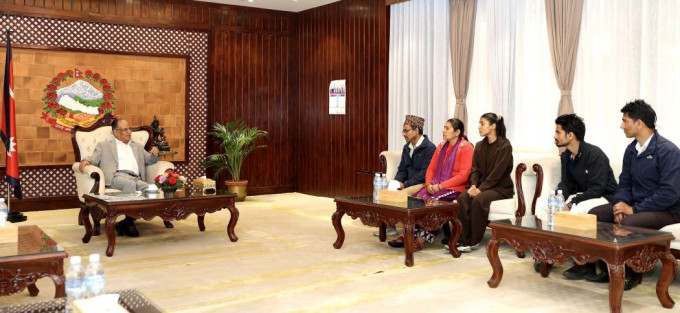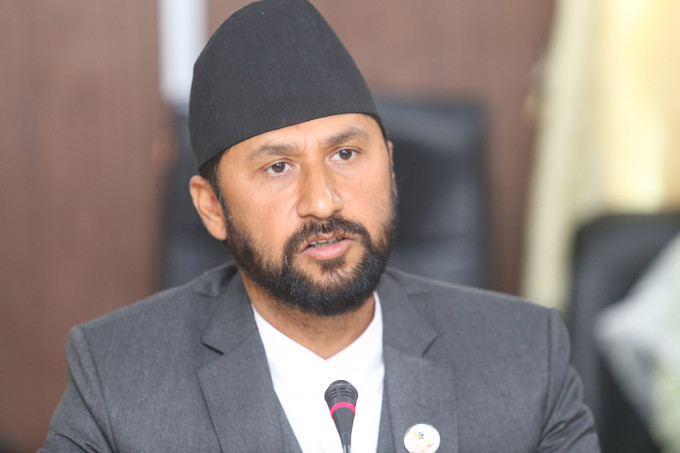The National Human Rights Commission’s data estimates that more than a million Nepalis are vulnerable to human trafficking. Economic necessities, illegal migration, lack of awareness, and insufficient implementation of the Anti-Human trafficking law provide feasibility for human traffickers to operate throughout Nepal.
Nepal’s Human Rights Commission report reveals how thousands of women and girls are trafficked from Nepal in a single year. Nepal’s open border with India also makes it convenient for traffickers to smuggle victims from Nepal into India or vice versa. In the whole of South Asia, women and children form the majority of victims. South Asian lands are in fact being used as sending, receiving, and transit points by human traffickers worldwide. In the case of children, several frauds happen in the name of educational opportunities abroad. Unaware parents trust their children to brokers who traffick their children away into forced labor and sex trafficking.
Even though the South Asian Association for Regional Cooperation Convention on Preventing and Combating Trafficking of Women and Children for Prostitution exists as a regional law enforcement agreement in South Asia, despite its condemnation of human trafficking, it has continued to flourish in the region.
According to senior legal practitioner Meera Dhungana of Forum for Women, Law and Development Nepal, domestic violence and financial discrimination make women more susceptible in Nepal to getting trafficked than men. The Constitution of Nepal guarantees rights to parental property by the daughter. The law clearly gives women their share in ancestral property however socio-cultural norms in Nepal make it difficult for women to get a share in inheritance alongside their brothers. Numerous studies show how getting hold of the property and financial resources prevents women from being victims of exploitation hence making them less vulnerable to human trafficking.
Nepal also is a destination country where victims are brought in. “The prevailing law on human trafficking in Nepal fails to recognize and prosecute the crime of human trafficking committed in Nepal itself. Many women are brought inside the country from other nations for sexual slavery,” says senior legal practitioner Meera Dhungana of the Forum for Women, Law, and Development (FWLD). FWLD has been involved in legal advocacy for the proper implementation of human trafficking laws in the country.
2002 Bonded Labor Act in Nepal, abolished bonded labor and set fines between 15,000 and 25,000 Nepali rupees. Similarly, The 2017 Labor Act, has criminalized forced labor and set penalties of up to 2 years in imprisonment, a fine of up to 500,000 Nepali rupees, or both. In recent years, new legislation has been passed by the Government of Nepal to protect the survivors of human trafficking. However, according to Nepal’s Trafficking In Person report 2022, prepared by the Embassy of the United States, the Government of Nepal has not yet, fully met the minimum standards for the elimination of trafficking. The report reveals how the government’s laws do not criminalize all forms of lab trafficking and sex trafficking, while numerous draft amendments are still pending. The study also reveals victim and witness protection mechanisms including the practice of justice officials are insufficient to tackle the threat human trafficking poses.
Another group of people who are vulnerable to human trafficking is Nepali migrant workers. While working abroad is both a necessity and a choice for millions of Nepali people, human traffickers benefit from the desperation of people to move abroad through legal or illegal means from Nepal. Few preventive measures are applied to ensure the safety and freedom of migrants going abroad for work. Legal provisions that make legal migration for work difficult for men and women in turn have a negative effect as many wishful men and women, some even underage, travel through unofficial channels.
Refugees and asylum seekers form a community of vulnerable people in Nepal as well. Their lack of legal documents granting them no protection from even a single nation-state in the world makes them susceptible to travel through unsafe and illegal means. Among one of the recommendations presented by the US embassy to the Government of Nepal in order to prevent human trafficking is providing documentation to stateless individuals, internationally-recognized refugees, and asylum-seekers and allowing them to work, attend school, and access social services.
READ ALSO:








